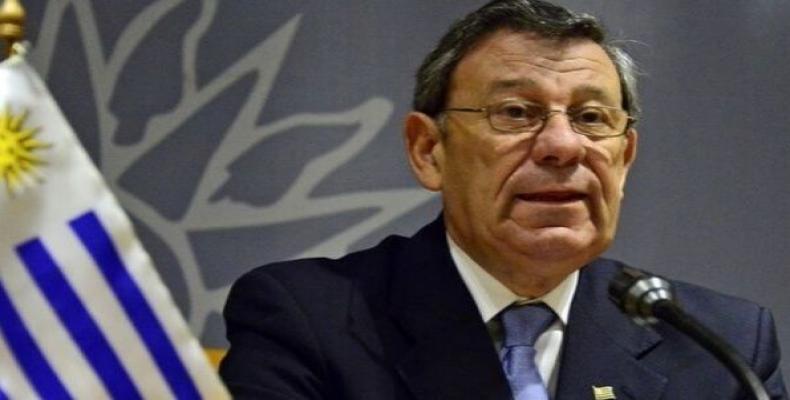Montevideo, September 23 (RHC)-- Uruguay will withdraw from the Inter-American Treaty of Reciprocal Assistance (TIAR) if its members approve military intervention against Venezuela, Foreign Affairs Minister Rodolfo Nin Novoa told La Republica Monday.
The diplomat reiterated that the countries that are pushing for this option "ignore the intrinsic value" of the treaty, which is the "defense of the member countries against external aggression," adding his country will denounce the mechanism if the path of war is chosen.
“That is the spirit of the treaty. Not all countries are member states and one of those is Venezuela. A treaty can’t be applied to a nation that does not integrate it. There is a great contradiction in all that,” Nin affirmed.
This comes as representatives from the member states of TIAR are meeting in New York to invoke the activation of the defense treaty, as Colombian Ambassador in the United States, Francisco Santos Calderon stated.
Last week, at the Organization of American States’ assembly, 12 U.S.-backed countries voted in favor of the implementation of the treaty, arguing the country represents "a threat to the security of the region," after Colombia accused Venezuela of allegedly protecting armed groups within its territory.
Venezuela has rejected the accusation and pointed out the lack of evidence, affirming these allegations are just an excuse for military intervention.
The treaty was signed in September 1947 in Rio de Janeiro, Brazil, to function as a mutual mechanism of defense between member countries of the OAS. The agreement, however, was imposed on the region by the United States within the context of the Cold War, with the aim of legitimizing military interventions in Latin America for ideological reasons.
Venezuela formally withdrew from the treaty in 2013 together with other nations belonging to the Bolivarian Alliance for the Peoples of Our America (ALBA), including Bolivia, Ecuador, and Nicaragua.
However, the opposition-held Venezuela National Assembly, in contempt and suspended since 2016, illegally and unconstitutionally approved the reincorporation to the treaty on July 23, 2019.
A flagrant violation of the Constitution, as Article 236 states that the public figure whose the attributions and obligations are to “celebrate and ratify treaties and international agreements” is the president and not legislators.
China, Nicaragua, Cuba, Mexico, and Uruguay have rejected the possible engagement in military actions against the Latin American nation, opposing any form of interference in the internal affairs of Venezuela, including military intervention.
On September 11th, Venezuelan Minister of Foreign Affairs Jorge Arreaza denounced the initiative, pushed by a group of U.S.-backed regional governments.


